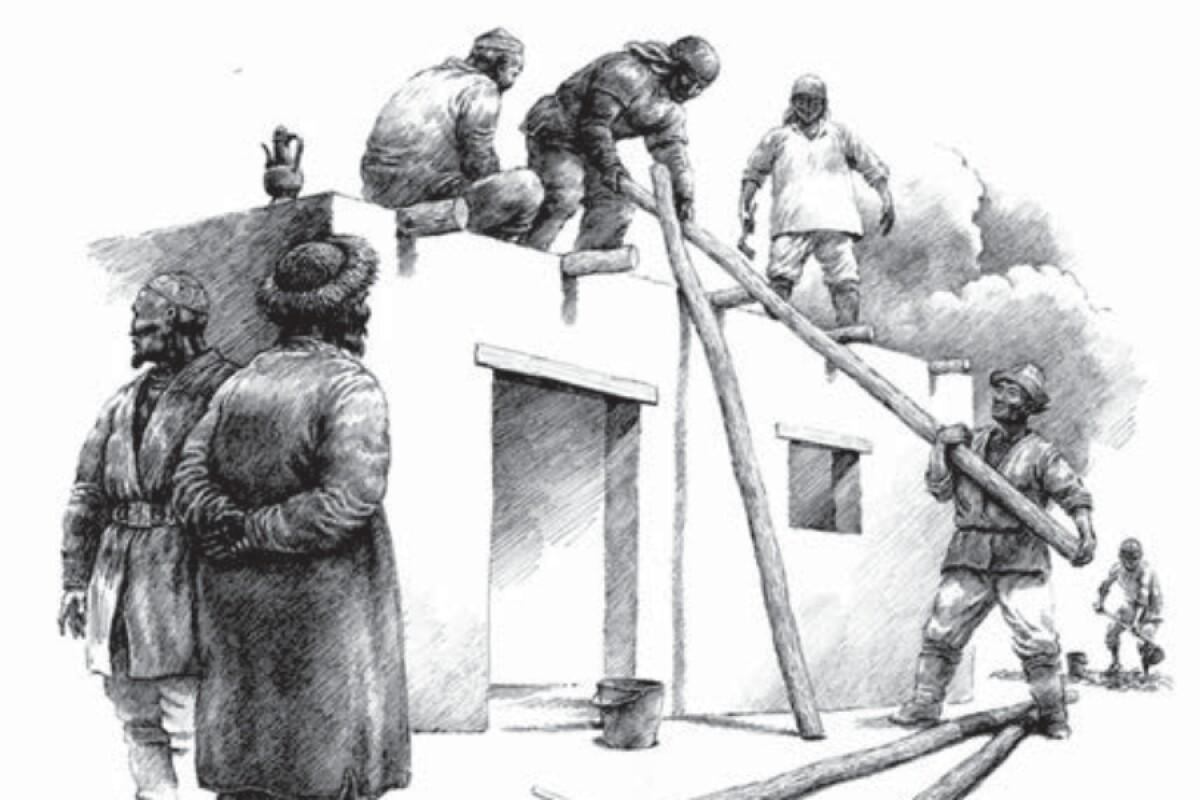
People, from the elderly to children gather from the entire village and do certain work, that is often unaffordable for individual families. This organized collective work on a voluntary basis is called asar. Kazakh people who lived in West Kazakhstan called it ‘ume’. ‘Asarshy’ and ‘mendigershi’- (a person who takes participation in asar) have the same meaning in the north of Kazakhstan. The age and power were the indicators for participation in asar. For example, a person, who was not younger than 16 and not elder than 60 could not participate in asar in Shu.
Asar is the reflection of the brotherhood, unity of fellow countrymen or relatives, striving to help voluntary to each other, so its distinguishing feature is that all work for free, without expectation of reward. The only expenses for home owners were meal expenses. Food and drinks should be plentiful and the work will be done well. If the works were not be finished on the first day, people gathered the next day. It was considered indecent to be absent on announced asar. Thus, Kazakh people often built houses or other constructions, built housing for the newly wedded couples, dug wells and built facilities for livestock. In the early XX century, Kazakh people built social schools and mosques due to this tradition. Those kinds of activities helped to strengthen relations between people and it played a great role in the social life. Every nomad was obliged to help to the drowning person, to give water or drink to the thirsty one. People also helped to find cattle, organized chase for horse thieves.
Every nomad had the right to use a horse from the herd of any tribesman in the case of extreme need and in case that does not require any delay. It was no need in any special permission of the owner. In case of refusal, he was sentenced to the fine ‘at-ton’ and was subjected to the public censure.
Asar is a good tradition that was widespread among people, which is now in need of support and development.
Photo: massaget.kz
